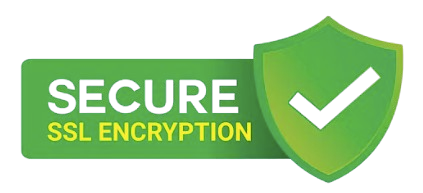Gas cards for cancer patients can be a valuable resource, providing much-needed support during a challenging time. These cards offer practical assistance by helping patients cover the cost of transportation to and from medical appointments, treatments, and check-ups. This can significantly reduce financial stress, allowing patients to focus on their recovery without worrying about the added expense of commuting.
Who Qualifies for Gas Cards for Cancer Patients Treatment?
Eligibility criteria for gas card assistance can vary depending on the specific program and organization offering it. However, most programs require that applicants meet certain criteria, including:
- Cancer Diagnosis: You must have a confirmed cancer diagnosis.
- Financial Need: You must demonstrate financial need, which may involve providing documentation of income and expenses.
- Treatment Plan: You must be undergoing active cancer treatment, such as chemotherapy, radiation therapy, or surgery.
- Geographic Location: Some programs may have geographic restrictions, such as only serving residents of a particular state or region.
Additional factors that may be considered include:
- Type of Cancer: Some programs may prioritize assistance for specific types of cancer.
- Stage of Cancer: The stage of your cancer may also be a factor.
- Income Level: Your income level may be taken into account, especially if the program is income-based.
Application Process
The application process for gas cards for cancer treatment can vary depending on the specific organization offering the assistance. However, there are some general steps you can follow:
- Research Organizations: Start by researching organizations that offer gas card programs for cancer patients. This can include cancer foundations, patient assistance programs, and local charities.
- Gather Required Documentation: Prepare the necessary documentation, which may include:
- Proof of cancer diagnosis
- Documentation of treatment plan
- Proof of financial need (e.g., income statements, expense records)
- Identification information
- Submit Application: Complete the application form provided by the organization and submit it along with the required documentation. You may be able to submit your application online, by mail, or in person.
- Wait for a Response: Once your application is received, the organization will review it to determine your eligibility for gas card assistance. You should receive a notification of the decision within a specified timeframe.
Tips for a Successful Application:
- Be Organized: Gather all the necessary documentation in advance to avoid delays.
- Be Patient: The application process may take some time, so be patient and follow up if you haven't heard back after a reasonable period.
- Be Honest: Provide accurate and truthful information on your application.
- Consider Multiple Organizations: If you are denied assistance by one organization, don't give up. There may be other programs that you qualify for.
Requirements for Gas Card Assistance for Cancer Patients
The specific requirements for gas card assistance can vary depending on the organization offering the program. However, there are some common criteria that are often considered:
General Requirements:
- Cancer Diagnosis: You must have a confirmed diagnosis of cancer.
- Active Treatment: You must be undergoing active cancer treatment, such as chemotherapy, radiation therapy, or surgery.
- Financial Need: You must demonstrate financial need. This may involve providing documentation of income, expenses, and other relevant financial information.
Additional Requirements:
- Geographic Location: Some programs may have geographic restrictions, such as only serving residents of a particular state or region.
- Type of Cancer: Some programs may prioritize assistance for specific types of cancer.
- Stage of Cancer: The stage of your cancer may also be a factor.
- Income Level: Your income level may be taken into account, especially if the program is income-based.
- Citizenship or Residency: You may be required to be a U.S. citizen or legal resident.
Gas Card Programs Specifically for Cancer Patients
Here are some gas card programs that specifically target cancer patients. Please note that eligibility criteria and application processes may vary, so it's always recommended to contact the organization directly for the most up-to-date information.
Cancer Foundations:
- American Cancer Society:
- Susan G. Komen Foundation:
- Leukemia & Lymphoma Society:
Patient Assistance Programs:
- Partnership for Prescription Assistance (PPA):
- NeedyMeds:
Local Charities and Organizations:
- Your Local Cancer Center: Contact your local cancer center for information on available resources and assistance programs.
- United Way: Your local United Way may offer gas card assistance or can connect you with other organizations that do.
- Community Foundations: Many community foundations offer grants and assistance programs to support individuals in need.
National Organizations Offering Gas Cards for Cancer Patients
Here are some national organizations in the United States that offer gas card programs specifically for cancer patients:
Cancer Foundations:
- American Cancer Society:
- Susan G. Komen Foundation:
- Leukemia & Lymphoma Society:
Patient Assistance Programs:
- Partnership for Prescription Assistance (PPA):
- NeedyMeds:
Other National Organizations:
- National Breast Cancer Foundation:
- Pancreatic Cancer Action Network:
Local Resources for Gas Cards and Transportation Assistance for Cancer Patients
When seeking local resources for gas cards and transportation assistance for cancer patients, it's often best to start with your local cancer center or social worker. They can provide you with specific information about available programs in your area.
Here are some additional local resources you may want to explore:
Community Foundations:
- United Way: Your local United Way chapter may offer gas card assistance or can connect you with other organizations that do.
- Community Foundations: Many community foundations offer grants and assistance programs to support individuals in need.
Social Services Agencies:
- Department of Social Services: Your local Department of Social Services may have programs to help with transportation costs.
- Social Service Agencies: Local social service agencies may offer assistance with transportation or other needs.
Religious Organizations:
- Churches and Synagogues: Many religious organizations offer assistance programs to their members and the community.
Volunteer Groups:
- Volunteer Transportation Services: Some volunteer groups offer transportation services to individuals in need.
Additional Financial Assistance Programs for Cancer Patients
Here are some additional financial assistance programs that may be helpful for cancer patients:
National Organizations:
- NeedyMeds:
- Partnership for Prescription Assistance (PPA):
- RxHope:
- Contact: 1-888-RXHOPE-1 (794-673-1)
- CarePath:
Local Resources:
- Your Local Cancer Center: Contact your local cancer center for information on available financial assistance programs.
- Social Service Agencies: Local social service agencies may offer financial assistance for medical expenses.
- Community Foundations: Many community foundations offer grants and assistance programs.
- Religious Organizations: Some religious organizations offer financial assistance to their members and the community.
Remember to reach out to your local cancer center or social worker for the most up-to-date information on available resources in your area. They can provide you with personalized guidance and support.
Frequently Asked Questions
What are gas cards for cancer patients?Gas cards for cancer patients are a type of financial assistance that helps cover the cost of transportation to and from medical appointments, treatments, and other related services. They can be a valuable resource for individuals battling cancer, as transportation expenses can add significant financial strain.
How do gas cards for cancer patients work?Gas cards are typically prepaid cards that can be used to purchase gasoline at participating gas stations. Patients receive the card with a specific amount of money loaded onto it, which can be used to cover their transportation costs.
Who qualifies for gas cards for cancer patients?Eligibility criteria for gas cards can vary depending on the specific program and organization offering them. However, most programs require that applicants have a confirmed cancer diagnosis, demonstrate financial need, and be undergoing active cancer treatment.
Where can I find gas card programs for cancer patients?There are several sources of gas card programs for cancer patients, including cancer foundations, patient assistance programs, local charities, and social service agencies. You can contact your local cancer center or social worker for specific recommendations.
How do I apply for gas card assistance?The application process for gas cards can vary depending on the organization offering the program. However, most require you to provide documentation of your cancer diagnosis, treatment plan, and financial need. You may also need to submit identification information and proof of residency.
Are there any restrictions on how gas cards can be used?Some gas card programs may have restrictions on how the cards can be used. For example, they may only be valid at certain gas stations or for specific types of fuel. It's important to read the terms and conditions of the program carefully.
How much money is typically loaded onto gas cards for cancer patients?The amount of money loaded onto gas cards can vary depending on the program and the specific needs of the patient. Some programs may provide a fixed amount, while others may offer a more flexible approach.
Can I use a gas card for other expenses besides fuel?Gas cards are typically designed to be used for fuel purchases only. However, some programs may allow the cards to be used for other transportation-related expenses, such as parking fees or tolls.
Are there any fees associated with using gas cards?Some gas card programs may charge fees, such as activation fees or monthly maintenance fees. However, many programs offer these services at no cost to cancer patients.
Can I get a gas card if I'm not receiving cancer treatment?Most gas card programs require that applicants be undergoing active cancer treatment. However, there may be some exceptions for patients who are in remission or receiving follow-up care. It's important to check with the specific program for their eligibility requirements.





